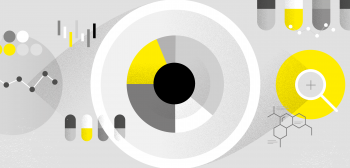The barriers to communication
Why people don’t hear what you say
“I know we’re the best people to do the job for them but they don’t seem to get it.” I can see their eyes glazing over – they’re not listening!”
Have you heard yourself saying anything like this? If you have, you are one step ahead of the people who have no idea that people are not hearing or understanding what they say.
We’re talking and writing on phones, in emails and in letters from the moment we wake up until the moment we go to sleep. Surely we’ve got this communication thing cracked? Based on this assumption we convince ourselves that if someone doesn’t ‘get’ what we are saying or doesn’t follow our instructions then surely the problem must be theirs not ours.
Even if it is at least partially the case, if getting the results we want relies on people hearing what we say, understanding it and acting on it, it is in our best interests to make sure that we are breaking through any barriers that are getting in the way. Knowing what they are is a great start to overcoming them.
Here are a few to bear in mind:
1. Credibility
We tend not to listen to people who we do not trust or consider credible. If you have not previously established trust and credibility with your audience then try to do so before you deliver your main message.
2. Attention
Attention tends to waver. We get distracted by interruptions, other things we have on our mind, what is going on outside, even by a picture on the wall behind someone who is speaking to us. Take this into account:
Have conversations where interruptions will be minimised
Deal with any pressing issues on a person’s mind before expecting them to concentrate on your conversation
Watch for indications that someone’s attention is wandering and take action to bring them back: “would it help if I summarised?” Say the important stuff at the beginning – don’t save it for a grandstand conclusion – and repeat it.
3. Noise
Any other communication that exists in your airspace will create ‘noise’ that will stop people hearing what you are saying. Conflicting messages are particularly dangerous. Be aware of anything else that is being communicated at the same time as your message goes out – especially if it is on the same subject and/or says something different.
4. Filters
Past experiences, values, beliefs, attitudes – all of these things influence what we hear and the way we hear it. Our inbuilt prejudices affect the messages we receive – they can block or distort them. Sometimes we hear what we want to hear or what we were expecting to hear. Put yourself in the other person’s shoes.
5. Language
Even amongst people who all speak English, language barriers exist. Jargon and a way of speaking connected to a particular role is an obvious issue – accountants can sound as though they come from a foreign country sometimes and if you spend too long talking to them it can be catching. A difference in background and perspective changes your language. Make sure that you speak in the language of the people you are talking to.
6. Dissonance
Remember that only 7% of your message is conveyed by the way you speak. If your tone and body language are not aligned with your words then you will create a mismatch. At best this will weaken your message. At worst it will subvert it.
Even when you have taken all possible action to shape your message so that it is received and understood, never make assumptions. If you have made the effort to communicate effectively, take an extra moment to check that you have accomplished your aim.















